New Delhi (January 4, 2023): The 17th annual Global Healthcare Summit by the American Association of Physicians of Indian Origin (AAPI) came to a close with a call and commitment to help bridge the Digital Gap in Healthcare delivery system in India with the effective utilization of modern technology.
The flagship conference with the theme, “Cutting Edge in Healthcare and Artificial Intelligence” held at the pioneering All India Medical Institute of Medical Sciences (AIIMS) and Le Meriden Hotel was attended by over a hundred delegates from around the world and over 250 physicians and medical students from several Medical Schools and Hospitals from across India was held in New Delhi from January 1st to 3rd, 2024.
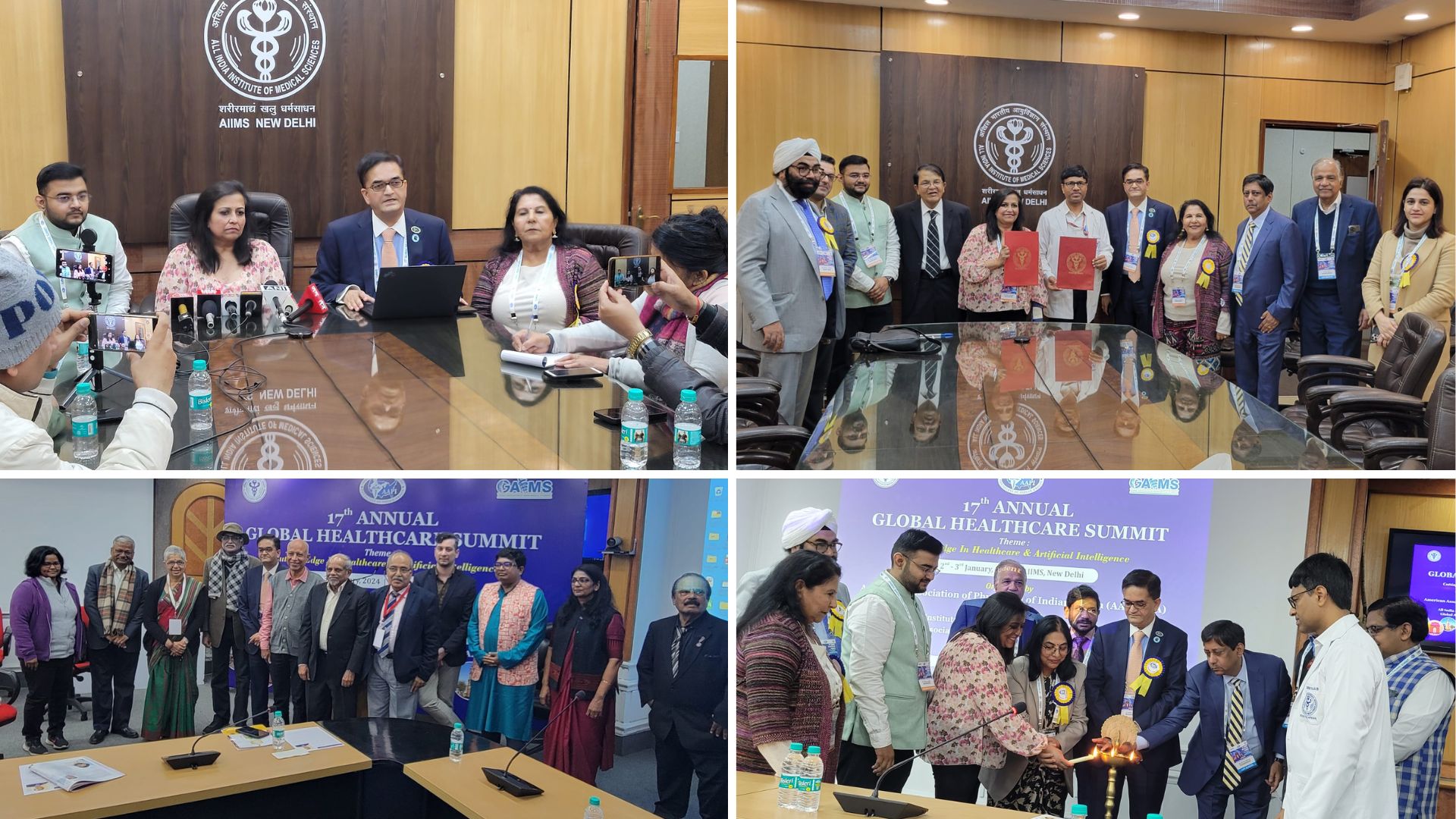 In her welcome address, Dr. Anjana Samadder, President of the American Association of Physicians of Indian Origin (AAPI) said, “I extend my warmest greetings to each and every one of you attending this prestigious 17th annual Global Healthcare Summit in New Delhi and Manipal. For the first time it is being held in two cities, in collaboration with prestigious institutions, such as AIIMS, New Delhi and MAHE in Manipal. As the president of AAPI, I’m honored to welcome a diverse gathering of experts, policymakers, healthcare professionals, and advocates dedicate dedicated to advancing global health. I want to thank was speakers and sponsors for their contributions.”
In her welcome address, Dr. Anjana Samadder, President of the American Association of Physicians of Indian Origin (AAPI) said, “I extend my warmest greetings to each and every one of you attending this prestigious 17th annual Global Healthcare Summit in New Delhi and Manipal. For the first time it is being held in two cities, in collaboration with prestigious institutions, such as AIIMS, New Delhi and MAHE in Manipal. As the president of AAPI, I’m honored to welcome a diverse gathering of experts, policymakers, healthcare professionals, and advocates dedicate dedicated to advancing global health. I want to thank was speakers and sponsors for their contributions.”
For the first time ever, AAPI is hosting the annual Global Healthcare Summit (GHS) in two cities in India, giving delegates, who are coming from the United States to participate and gain a unique perspective and experience India from the North to the South ,
AAPI’s 17th annual Global Healthcare Summit (GHS) 2024 was held at the at the Le Meridien Hotel from January 1-3rd and will be held at the Kasturba Medical College, Manipal, MAHE in Karnataka from January 4th to 6th, 2023. The GHS was inaugurated at the prestigious Le Meridien Hotel in New Delhi with a memorable New Year’s Day Eve celebration on December 31st, 2023.
GHS is being organized by AAPI in collaboration with AAIMS, Kasturba Medical College in Manipal, the Indian Medical Association, and the Government of the State of Karnataka and the Global Association of Indian Medical Students (GAIMS),
Dr. Sampat Shivangi, Chair of GHS 2024 said, “With the rapidly changing healthcare landscape, AAPI has rightly chosen to focus on the future of Healthcare and Artificial Intelligence during the GHS 2024, and is being organized in collaboration with AIIMs, and University of Manipal, which are in the league of the best academic centers. With the invention of Artificial Intelligence, we want to explore its impact on Medicine and Healthcare in the 21st century.
The annual event of AAPI, GHS has contributed to ushering in new ways of providing healthcare to India’s 1.4 billion people, who live in the congested urban centers and in the rural/remote regions of the country. The 17th annual GHS will build on past initiatives and add several new programs, Dr. Samadder added.
AAPI, which has been leading efforts to help streamline medical education in India to meet the global standards, assembled a galaxy of medical regulatory organization leaders from India, the United Kingdom and the United States during the GHS on January 2, 2024.
Leaders of National Board of Examination in Medical Science (NBEMS) India, National Board of Examination in Medical Science (NBME) USA, and the Federation of State Medical Boards (FSMB) were among the panelists that discussed and educated the aspiring medical students from some of the premium Medical Schools in India who had keenly participated at the panel discussion.
Dr. Lokesh Edara, BOT-Chair Elect, Dr. Sumul N. Raval, current Secretary of AAPI, and Dr. Shubam Anand, Chairman of Global Association of Indian Medical Students (GAIMS) led and coordinated the initiatives.
Dr. Peter Katsufrakis, President and CEO, NBME,USA, Dr Humayun Chaudhry, President and CEO of the Federation of State Medical Boards, Jeffrey D. Carter, MD (Missouri) Chair of the FSMB, Dr. Sarvam TerKonda (Past Chair, FSMB USA), Ms. Katie Templeton JD (Chair-Elect, FSMB,USA), and Prof. Hasmukh Shah, Recruitment and Training in UK were some of the others from the Medical education field, who were part of the distinguished panelists. Dr. Abhijat Sheth represented NMBE – India. FSMB was represented by Dr. Humayun Chaudhry, President and CEO of the Federation of State Medical Boards. Dr. Sheth presented the NBEMS mission and PG NEET examination, FMGE examination and more than 50 specialties for postgraduate and super specialties courses they are conducting and graduating.
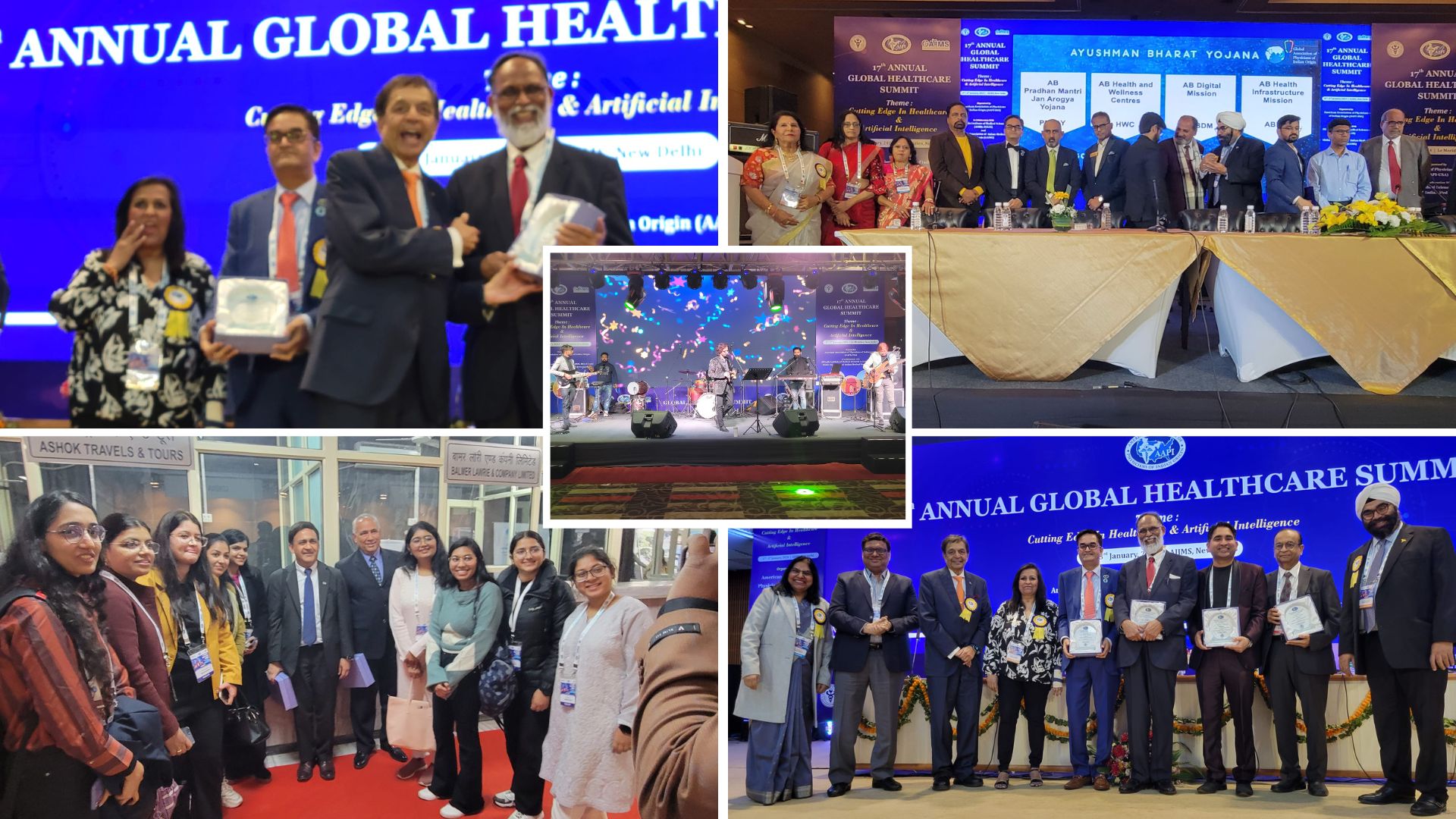 During GHS AAPI entered into a groundbreaking partnership with CLIRNET, India’s leading digital healthcare platform with the objective of running a Mentorship & Observership program jointly. While announcing the new initiative Dr. Samadder emphasized the imperative for healthcare professionals to stay at the forefront of innovation. She also highlighted that the collaboration between AAPI and CLIRNET marks a significant milestone in advancing clinical training in India.
During GHS AAPI entered into a groundbreaking partnership with CLIRNET, India’s leading digital healthcare platform with the objective of running a Mentorship & Observership program jointly. While announcing the new initiative Dr. Samadder emphasized the imperative for healthcare professionals to stay at the forefront of innovation. She also highlighted that the collaboration between AAPI and CLIRNET marks a significant milestone in advancing clinical training in India.
AAPI in collaboration with WHEELS Foundation has announced a $10,000 award towards the Project – Kanya: Sanitary Napkin Machine. The announcement was made during a joint panel discussion held as part of the GHS on ‘Menstrual Health’ (under the banner of ‘Kanya Conference’). The Kanya Challenge Award seeks to catalyze groundbreaking advancements in menstrual hygiene for Indian women through the development and commercialization of absorbent materials made from indigenous Indian resources.
The Panel Session was led by Dr. Anajana Samadder, Dr. Sumul Rawal, Secretary, AAPI, Anitha Thampi (of MCup), Jayadeep Mandal: Aakar Innovations & Aakar Social Ventures, Prof Virendra Kumar Vijay (of IIT-Delhi’s UBA Program) speaking on UBA supporting Saukhyam: Dr. Meenakshi Bharat, a Gynecologist and Fertility specialist who is a green campaigner, an advocate for Clean India. Prof Satish Agnihotri: Professor, Centre for Technology Alternatives for Rural Areas (CTARA), IIT Bombay with messages from Dr. Raj Shah, Dr. Vriti Khurana and Ratan Agarwal.
In his keynote address, Dr. Anupam Sibal, Chair of GHS – Delhi highlighted the enormous accomplishments of India and Indian Americans across many spectrums. He pointed to the advances in Medical Education in India, particularly since its independence, “In the past seven to eight decades, we’ve made considerable progress in higher education, and this is just a snapshot of the area. We have 149 institutes of national importance, more than 1000 universities and more than 50,000 colleges. fourth highest number of doctoral graduates in the world, the fourth highest research output in the world. We produce 6.5 million graduates every year 1.5 million engineers, 300,000 MBAs and 100,000 graduates.:
In his address, M. Srinivasan, Director of AIIMS said, “It is my pleasure that we are onboard with AAPI for its 17th annual Global Healthcare Summit. AIIMS New Delhi was established in 1956 to accomplish the trinity of mission, advanced medical education, cutting edge research, and quality patient care. I am certain that this conference will act as a platform for exchange of ideas and collaboration across the domains for cutting edge research and breakthrough in medical education. We look forward to meeting professionals, researchers and experts in the field of healthcare and research from across the globe.”
Dr. Lokesh Edara, Chair of AAPI BOT said, “AAPI’s GHS is yet another way of continuing with our constant commitment towards making quality healthcare affordable and accessible to all the people of India. In addition, GHS 2024 focusses on promoting Healthcare Technology including Artificial Intelligence in the Healthcare arena.”
Several prominent physicians and academicians are participating at the GHS and are leading the keynote addresses and are chairing various academic sessions that are being organized during the summit. Latest Advances, CME, ELS, Discussions on Research Methodology, and Scientific Writing by Academic Experts are part of the summit.
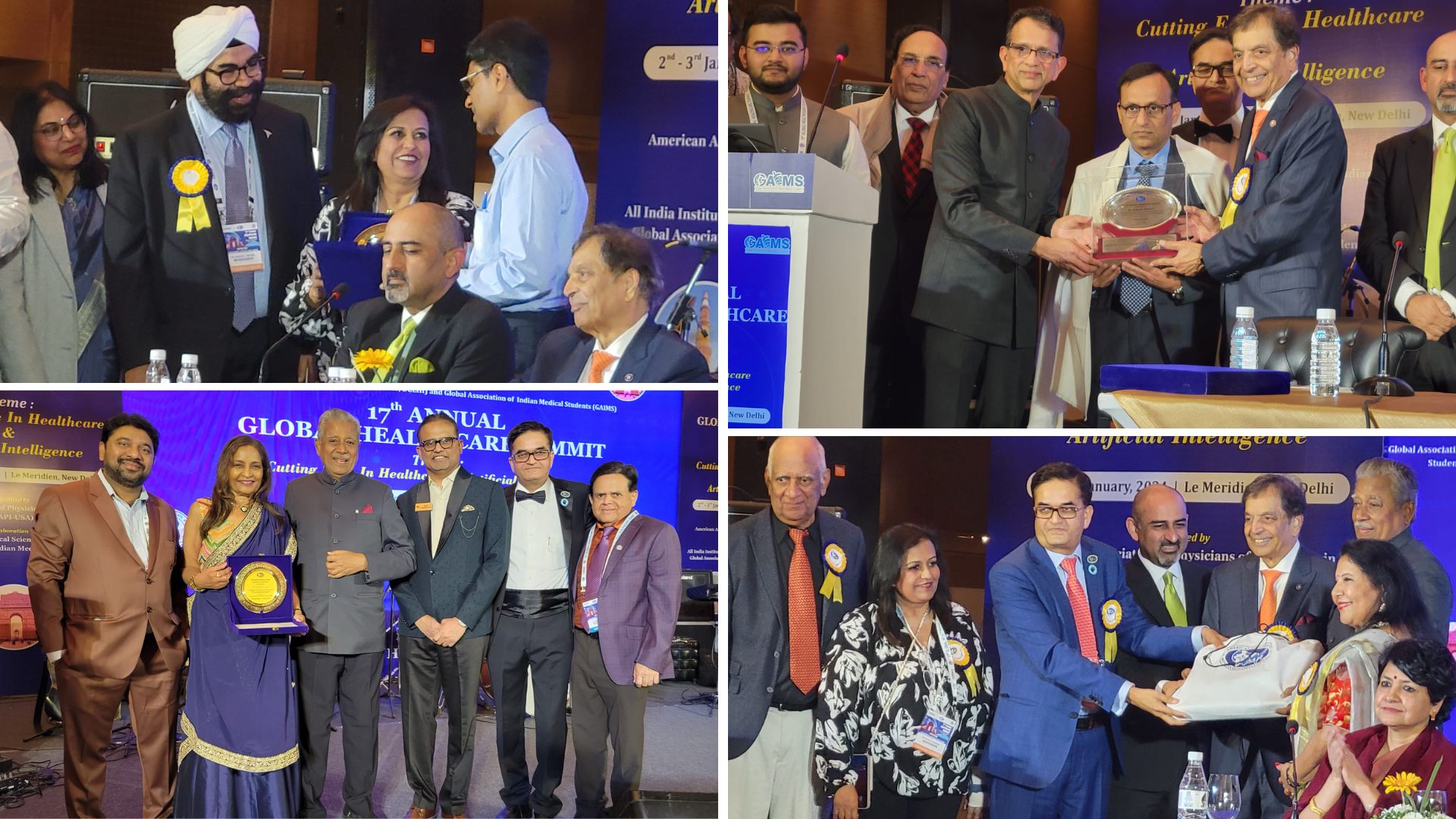 The CEO Forum addressed by eminent panelists that included, Air Marshal Sadhana Nair, Saurav Kasera, Sreeprasad Guduppa, Sudharshan Jain, Shenoy Robinson, Karthikeyan, IPS, and Suresh Samuel, in their eloquent addresses spoke on Equity, Ethics, and how to adapt to the changing landscape in the healthcare arena and make a positive and lasting impact, benefitting the physicians, industries and the larger population.
The CEO Forum addressed by eminent panelists that included, Air Marshal Sadhana Nair, Saurav Kasera, Sreeprasad Guduppa, Sudharshan Jain, Shenoy Robinson, Karthikeyan, IPS, and Suresh Samuel, in their eloquent addresses spoke on Equity, Ethics, and how to adapt to the changing landscape in the healthcare arena and make a positive and lasting impact, benefitting the physicians, industries and the larger population.
Physician Burnout and mitigating mental health issues among physicians was the major theme during the evening session, moderated by Dr. Shubham Anand, Dr. Inderpal Chadda, and Dr. Chanchal Pal. Distinguished panelists included: Dr. Sreenivasan, Director of AIIMS; Dr. Suresh Kumar, Director of LNJP Hospital; Dr. Subhash Giri, Director of LHMC; Dr. Ishwar Singh, Director of Indira Gandhi Hospital; Dr. Vinay Kumar, President, RDA, AIIMS; and Dr. Rohan Krishnan, Chairman, FAIMAR.
Dr. Bhavani Sreenivasan, Chair of AAPI Publications eloquently moderated the Women’s Forum on “Breaking Barriers and Shaping the Future of Women.” Air Marshal Dr. Sadhana Nair, Dr. Anita Ratnam, Dr. Damayante Karkare, Dr. Madhushree Katwal and Mrs. Geetha Athreya shared with the audience, quoting from their personal experiences about how they overcame challenges in life and became role models in their own way.
GHS was packed with day long workshops on various relevant topics, Trainings, Research Contest, Scientific Workshops and Panel Discussions on how modern technology is being used in the vast medical field. On New Years Day, participants went on a pilgrimage to Rishikesh, the holy shrine under the foothills of the Himalayas, seeking blessings from the Almighty.
Dr. Sumul Raval, Secretary of AAPI said, “Harnessing the power of Indian Doctors worldwide, the AAPI Global Healthcare Summit platform has evolved with the support of prominent global and Indian medical associations. AAPI’s mission is to make a positive and meaningful impact on the healthcare delivery system both in the US and in India.”
Healthcare in India is one of the largest sectors, in terms of revenue and employment. India is making significant improvements in its healthcare infrastructure and is building modern medical facilities throughout India. Doctors of Indian origin have made tremendous progress in the 21st century and India is now being touted as a medical tourism hub.
The Global Healthcare Summit has come a long way from the first Indo-US Healthcare Summit launched by AAPI USA in 2007. Since then, AAPI has organized 16 Indo – US/Global Healthcare Summits and developed strategic alliances with various organizations.
Highlighting the importance of the flagship annual GHS, Dr. Samadder said, “This summit serves as a powerful platform for knowledge exchange, collaboration, and the forging of meaningful partnerships. The work we do today paves the way for a healthcare landscape that is more efficient, accessible and affordable toward all individuals. For more details, please visit: www.aapiusa.org/

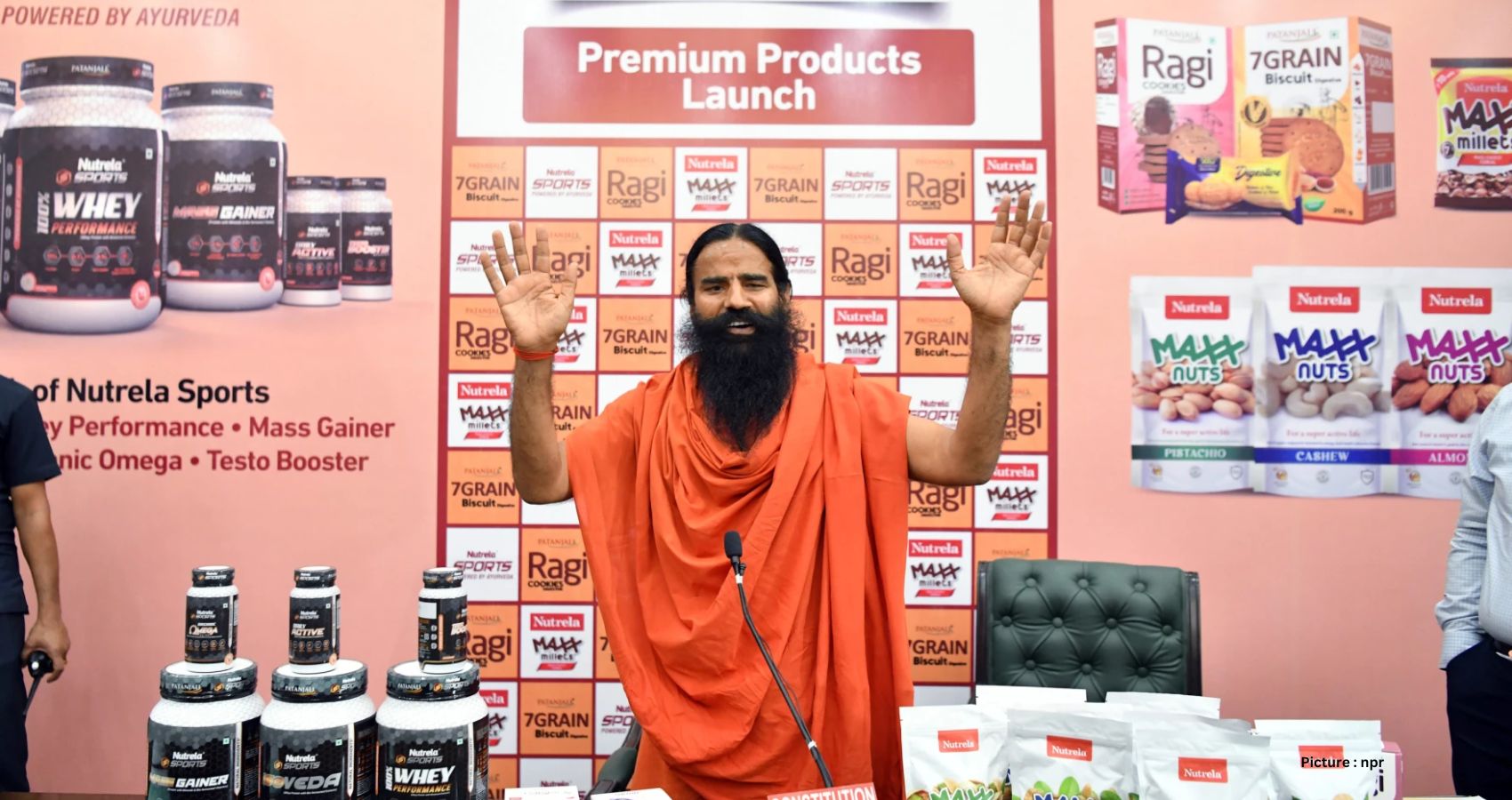
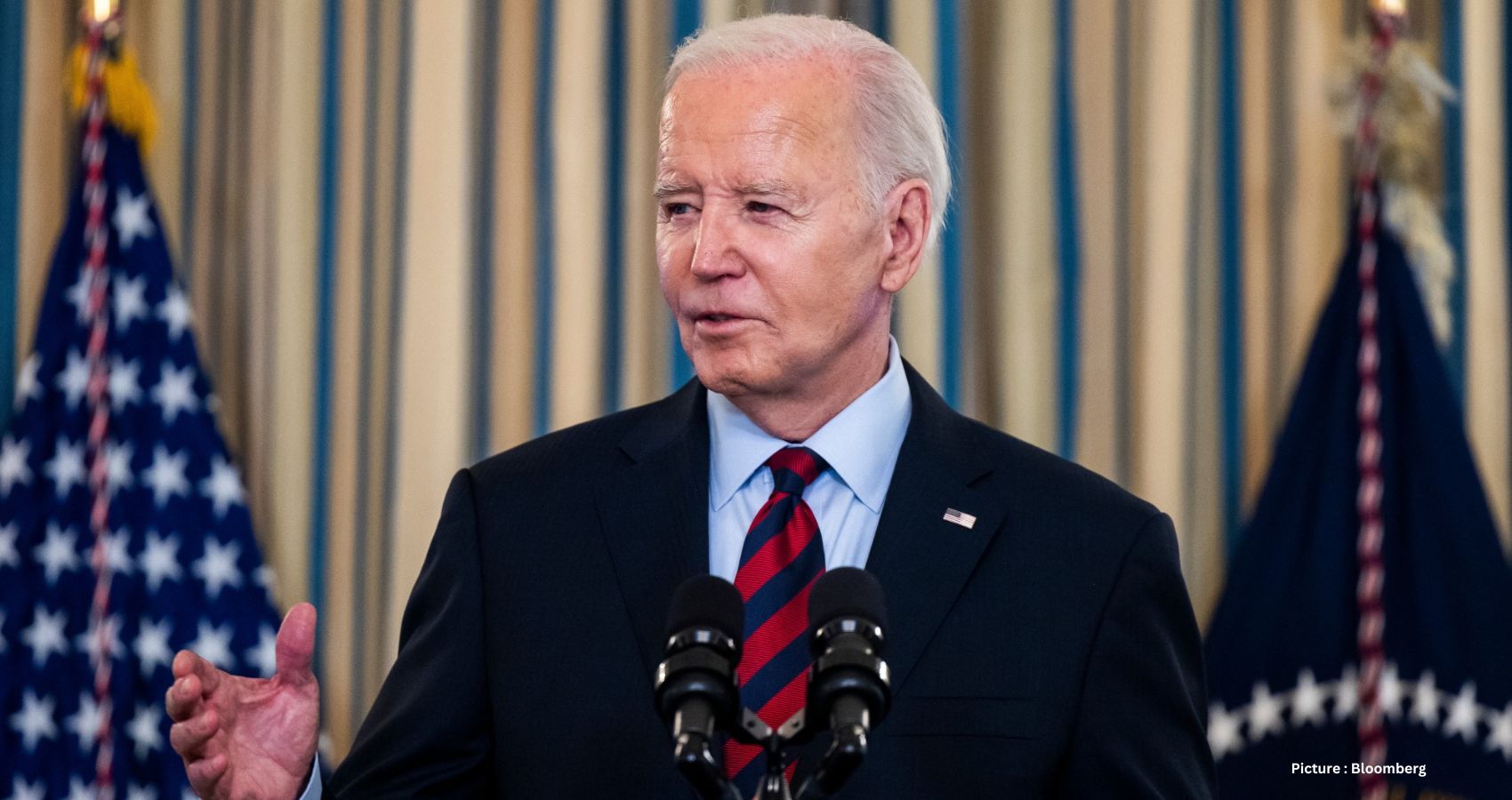
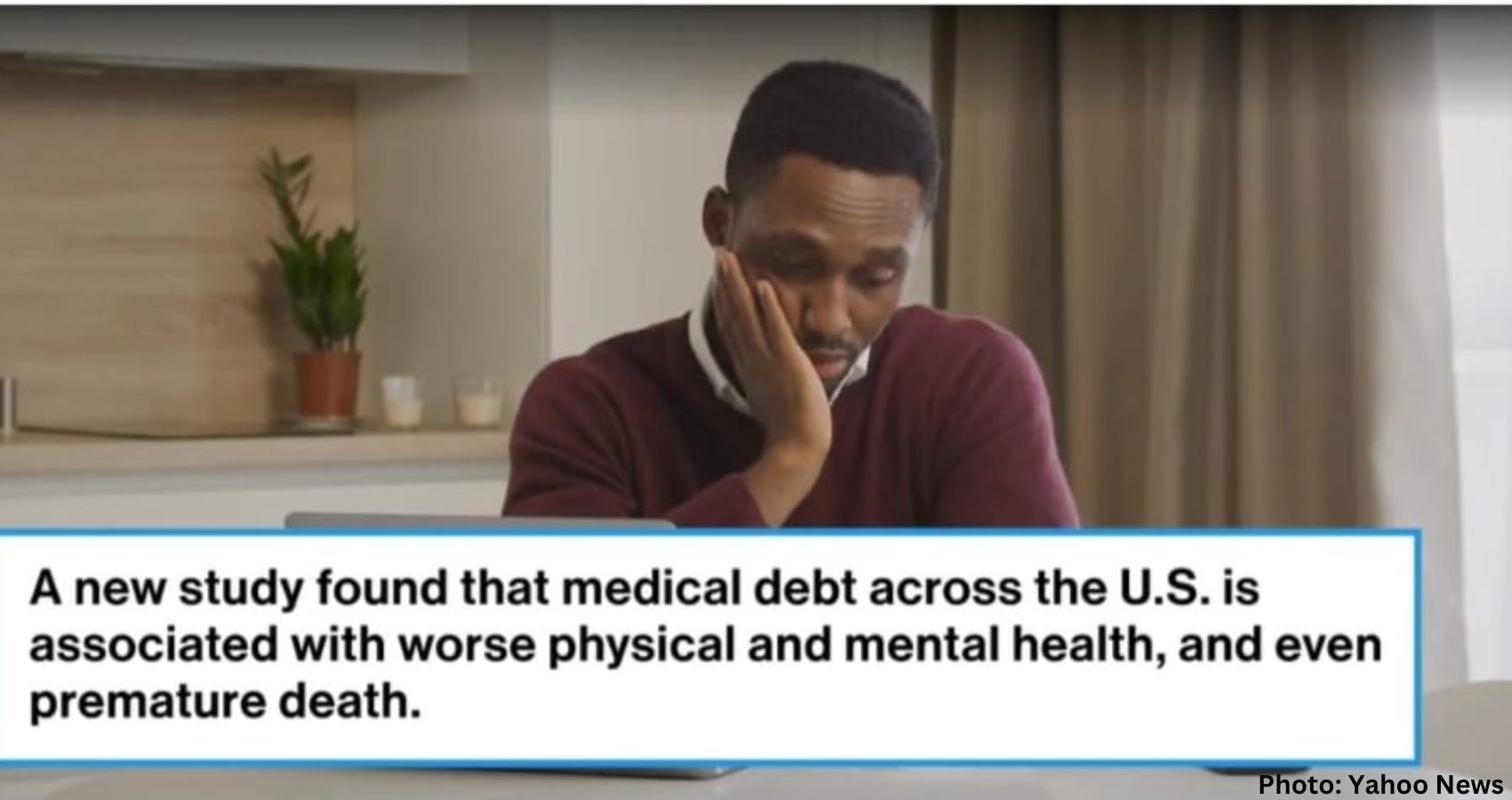
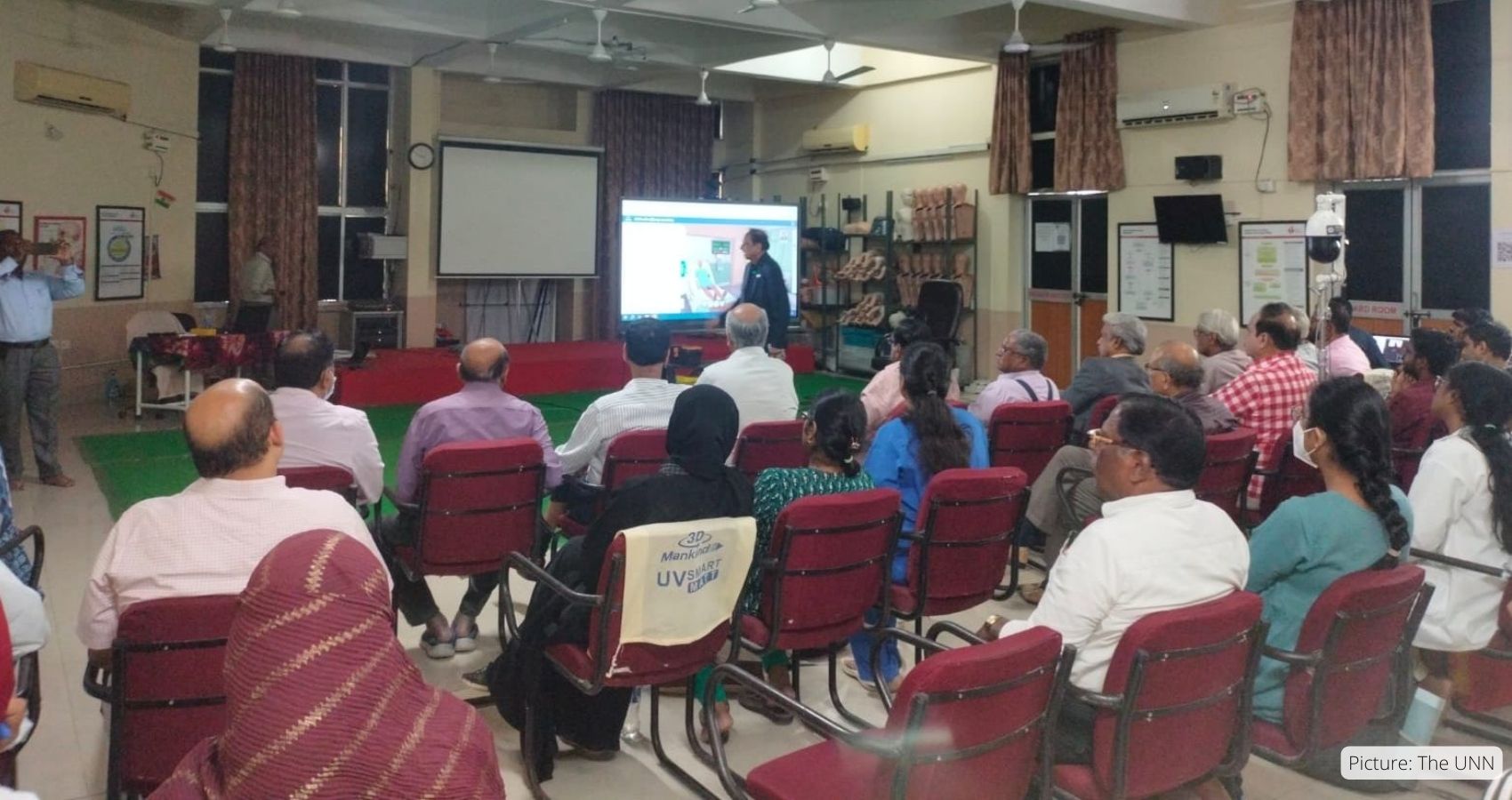
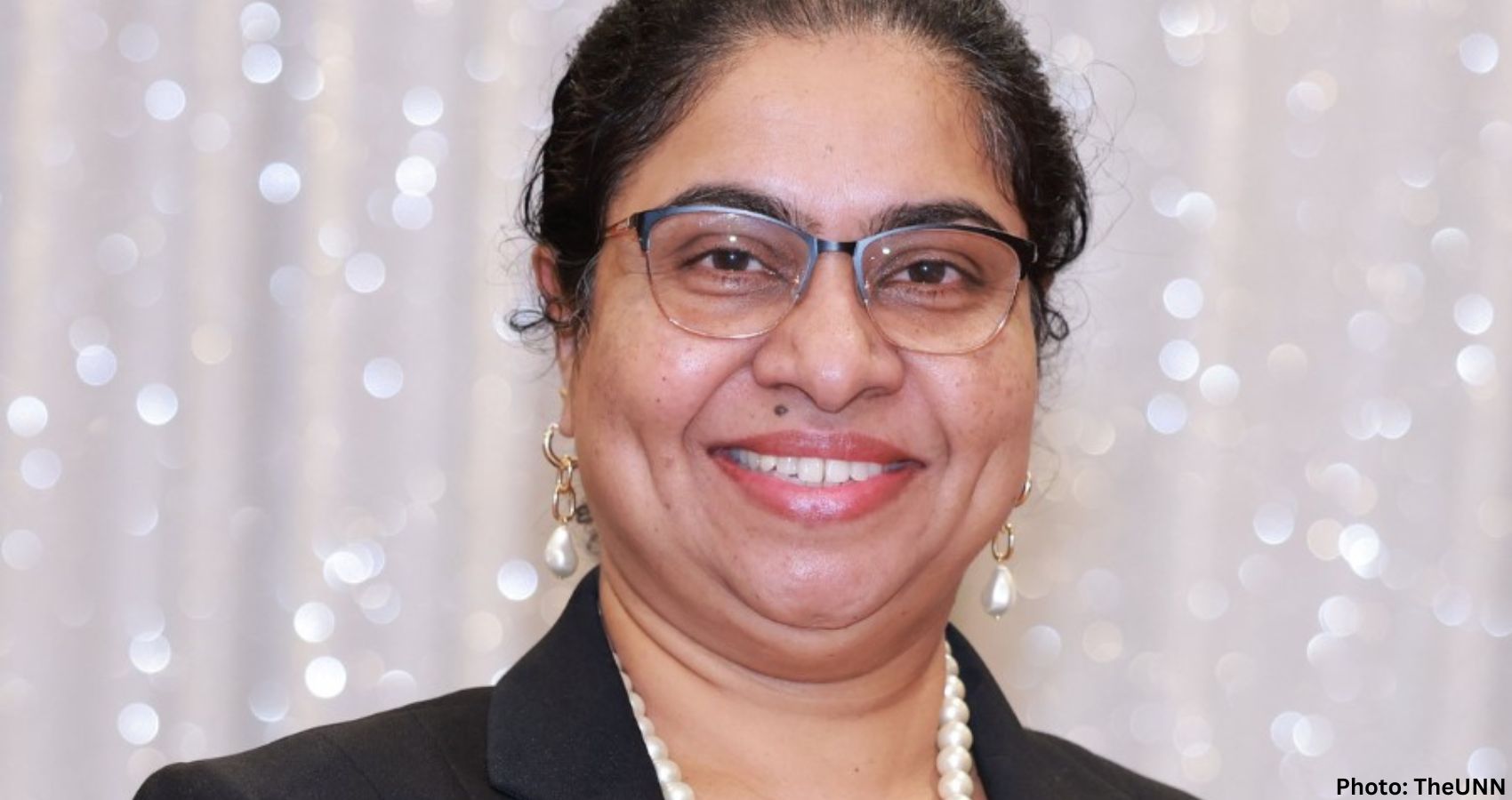
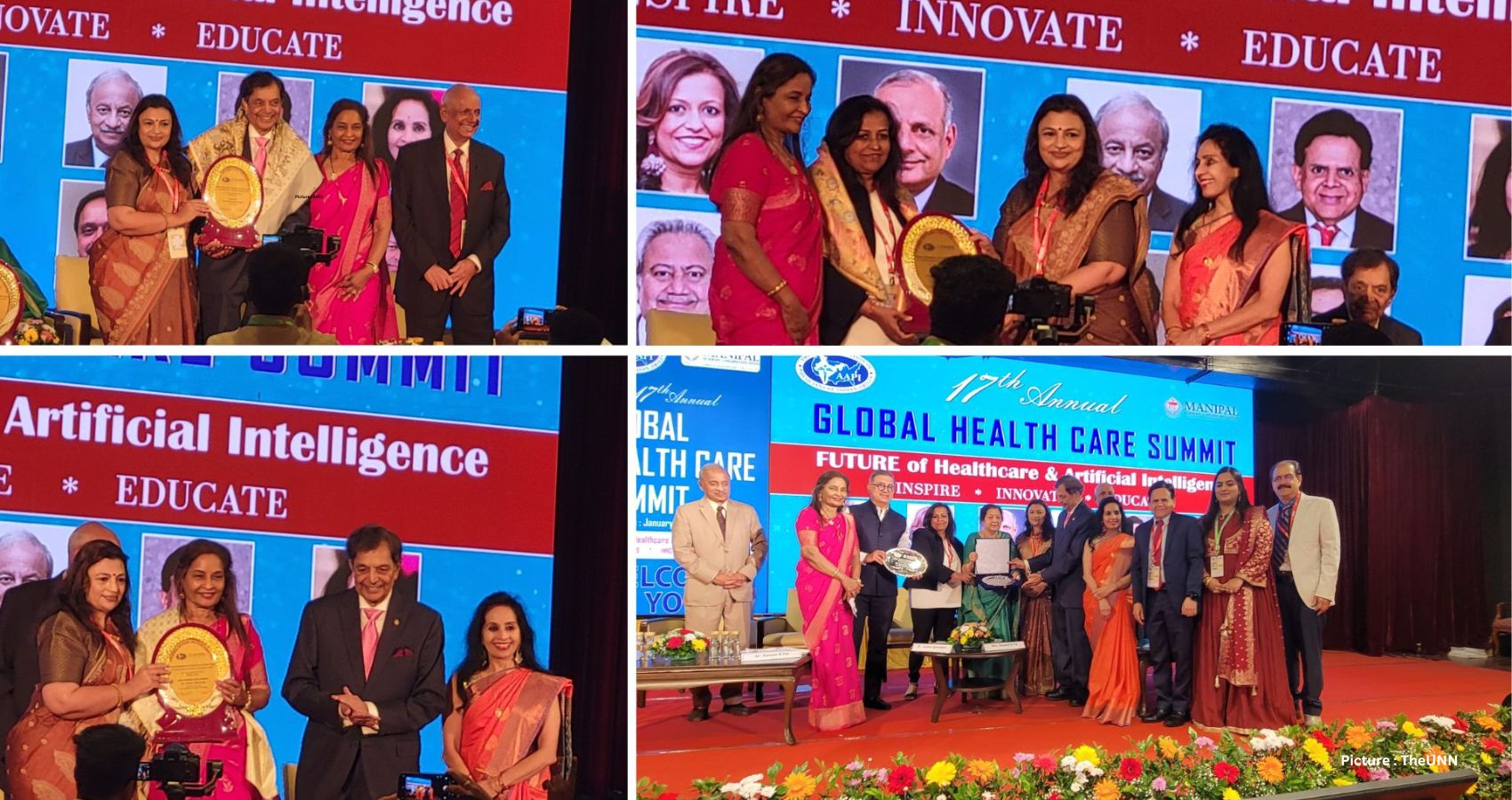
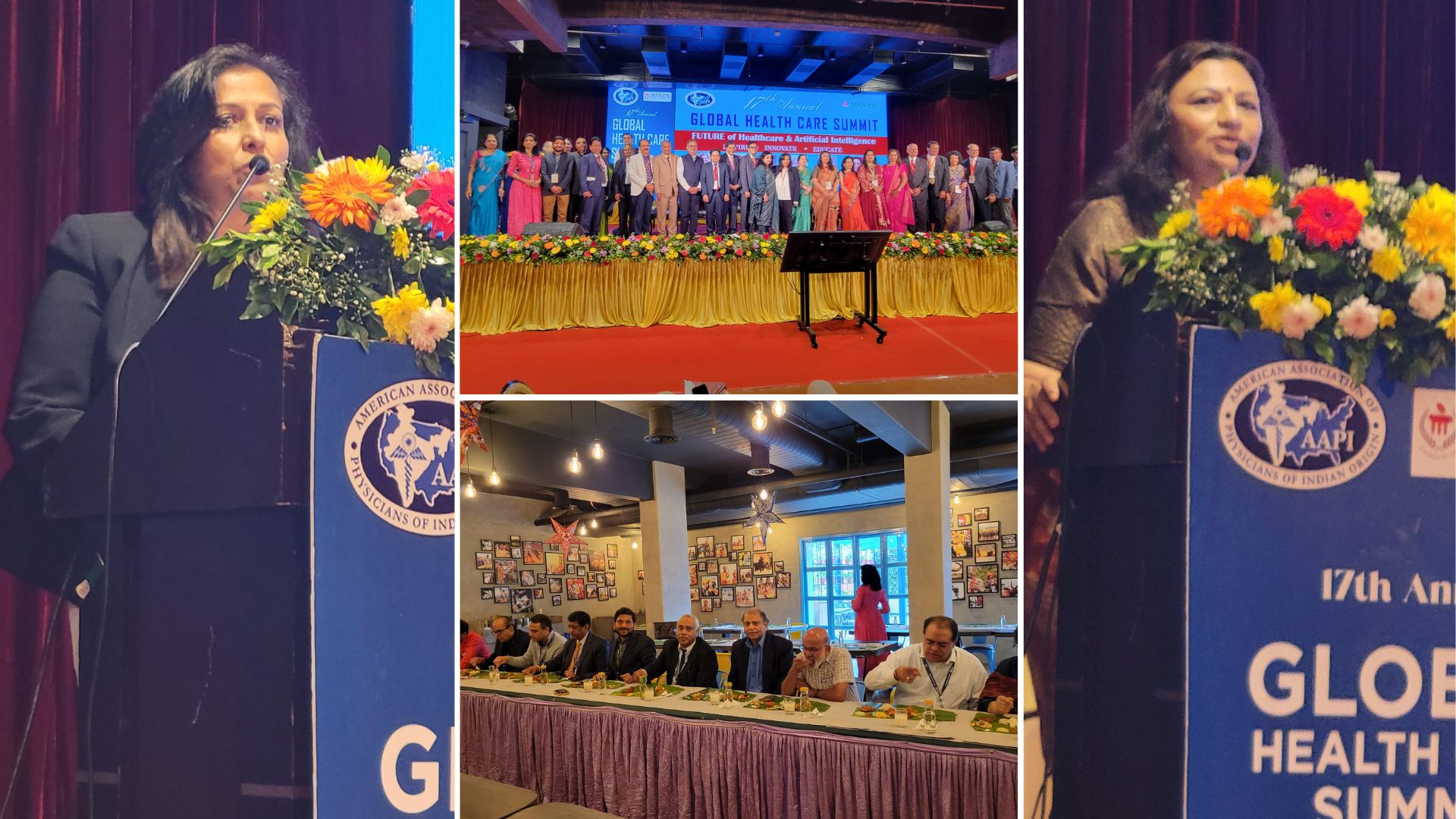 The AAPI Medical Symposium continued its legacy of delivering engaging and informative sessions, bringing together medical professionals and experts to explore various facets of healthcare. On January 5th, CME Sessions in Manipal was Inaugurated by Indian Medical Association National President, Dr. R .V. Ashokan.
The AAPI Medical Symposium continued its legacy of delivering engaging and informative sessions, bringing together medical professionals and experts to explore various facets of healthcare. On January 5th, CME Sessions in Manipal was Inaugurated by Indian Medical Association National President, Dr. R .V. Ashokan.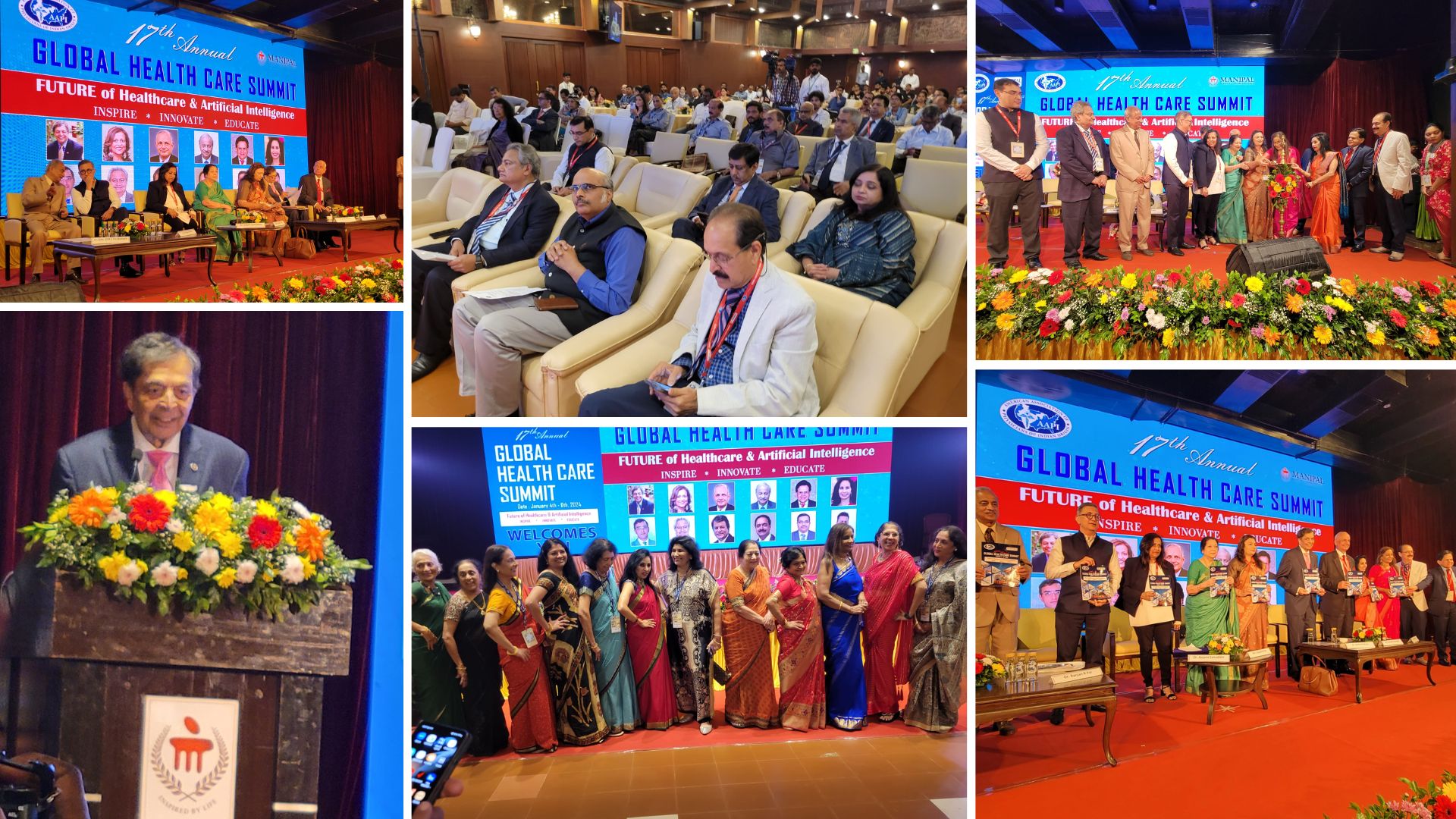 The Lifetime Achievement Award was conferred upon Dr. Ramdas Pai, Chancellor of Manipal Education Institute (MAHE). Dr. Ranjan Pai and Mrs. Vasanthi Pai accepted the honor on his behalf, and lauded Dr. Ramdas Pai’s achievements and invited all attending doctors to MAHE. Prominent personalities present at the event included Manipal Education and Medical Group (MEMG) Dr. Ranjan Pai, Dr. H S Ballal Pro Chancellor, MAHE, and Lt Gen (Dr) M D Venkatesh, Chair, GHS, India.
The Lifetime Achievement Award was conferred upon Dr. Ramdas Pai, Chancellor of Manipal Education Institute (MAHE). Dr. Ranjan Pai and Mrs. Vasanthi Pai accepted the honor on his behalf, and lauded Dr. Ramdas Pai’s achievements and invited all attending doctors to MAHE. Prominent personalities present at the event included Manipal Education and Medical Group (MEMG) Dr. Ranjan Pai, Dr. H S Ballal Pro Chancellor, MAHE, and Lt Gen (Dr) M D Venkatesh, Chair, GHS, India.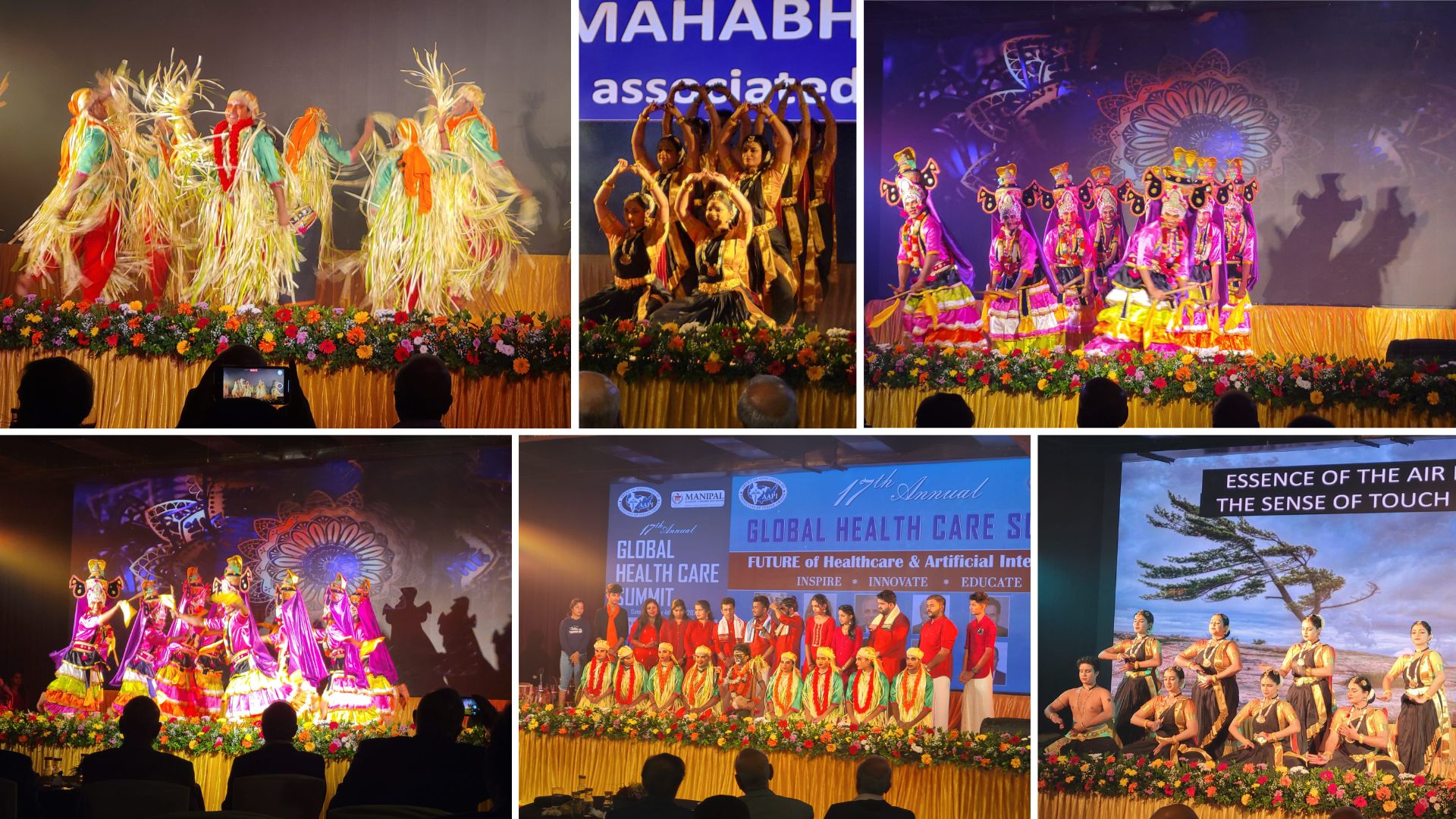 The popular CEO Forum had leaders in both the corporate and healthcare field, including, Ganesh Nayak, Executive Director, Zydus Lifesciences Ltd., Jagadish Tande, Prof. Madhav Das Nalapat, Dr. Vijay Gopal, Cardiologist, and Mr. Jagadish K M, CEO of KMF. The CEO Forum chaired by Dr. Sampat Shivangi, Chair of GHS 2024. The CEO Forum was moderated by Dr. Subra Bhat, who was a lead organizer og GHE Manipal along with his wife, Dr. Anu Bhat.
The popular CEO Forum had leaders in both the corporate and healthcare field, including, Ganesh Nayak, Executive Director, Zydus Lifesciences Ltd., Jagadish Tande, Prof. Madhav Das Nalapat, Dr. Vijay Gopal, Cardiologist, and Mr. Jagadish K M, CEO of KMF. The CEO Forum chaired by Dr. Sampat Shivangi, Chair of GHS 2024. The CEO Forum was moderated by Dr. Subra Bhat, who was a lead organizer og GHE Manipal along with his wife, Dr. Anu Bhat.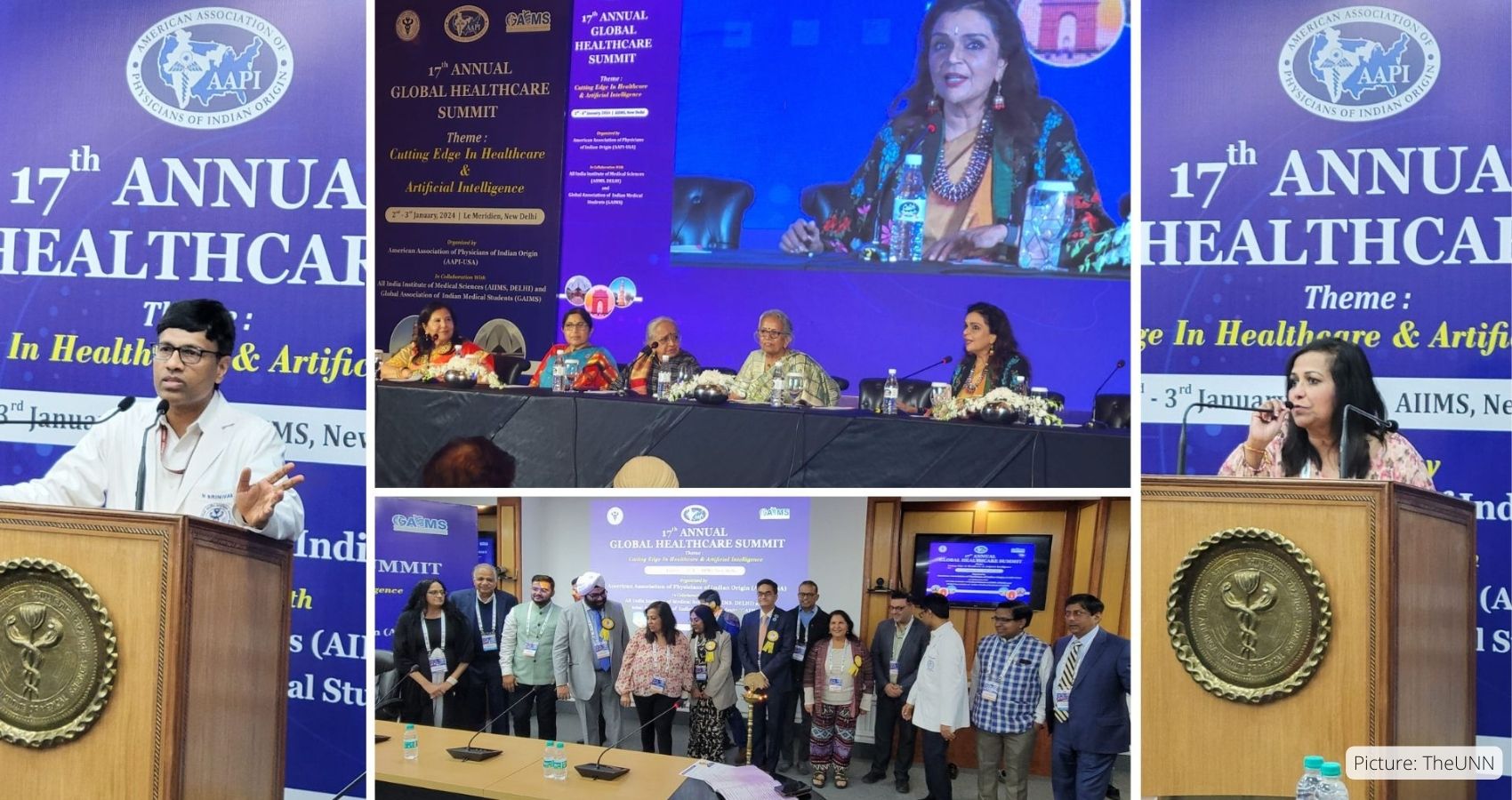
 In her welcome address, Dr. Anjana Samadder, President of the American Association of Physicians of Indian Origin (AAPI) said, “I extend my warmest greetings to each and every one of you attending this prestigious 17th annual Global Healthcare Summit in New Delhi and Manipal. For the first time it is being held in two cities, in collaboration with prestigious institutions, such as AIIMS, New Delhi and MAHE in Manipal. As the president of AAPI, I’m honored to welcome a diverse gathering of experts, policymakers, healthcare professionals, and advocates dedicate dedicated to advancing global health. I want to thank was speakers and sponsors for their contributions.”
In her welcome address, Dr. Anjana Samadder, President of the American Association of Physicians of Indian Origin (AAPI) said, “I extend my warmest greetings to each and every one of you attending this prestigious 17th annual Global Healthcare Summit in New Delhi and Manipal. For the first time it is being held in two cities, in collaboration with prestigious institutions, such as AIIMS, New Delhi and MAHE in Manipal. As the president of AAPI, I’m honored to welcome a diverse gathering of experts, policymakers, healthcare professionals, and advocates dedicate dedicated to advancing global health. I want to thank was speakers and sponsors for their contributions.” During GHS AAPI entered into a groundbreaking partnership with CLIRNET, India’s leading digital healthcare platform with the objective of running a Mentorship & Observership program jointly. While announcing the new initiative Dr. Samadder emphasized the imperative for healthcare professionals to stay at the forefront of innovation. She also highlighted that the collaboration between AAPI and CLIRNET marks a significant milestone in advancing clinical training in India.
During GHS AAPI entered into a groundbreaking partnership with CLIRNET, India’s leading digital healthcare platform with the objective of running a Mentorship & Observership program jointly. While announcing the new initiative Dr. Samadder emphasized the imperative for healthcare professionals to stay at the forefront of innovation. She also highlighted that the collaboration between AAPI and CLIRNET marks a significant milestone in advancing clinical training in India. The CEO Forum addressed by eminent panelists that included, Air Marshal Sadhana Nair, Saurav Kasera, Sreeprasad Guduppa, Sudharshan Jain, Shenoy Robinson, Karthikeyan, IPS, and Suresh Samuel, in their eloquent addresses spoke on Equity, Ethics, and how to adapt to the changing landscape in the healthcare arena and make a positive and lasting impact, benefitting the physicians, industries and the larger population.
The CEO Forum addressed by eminent panelists that included, Air Marshal Sadhana Nair, Saurav Kasera, Sreeprasad Guduppa, Sudharshan Jain, Shenoy Robinson, Karthikeyan, IPS, and Suresh Samuel, in their eloquent addresses spoke on Equity, Ethics, and how to adapt to the changing landscape in the healthcare arena and make a positive and lasting impact, benefitting the physicians, industries and the larger population.